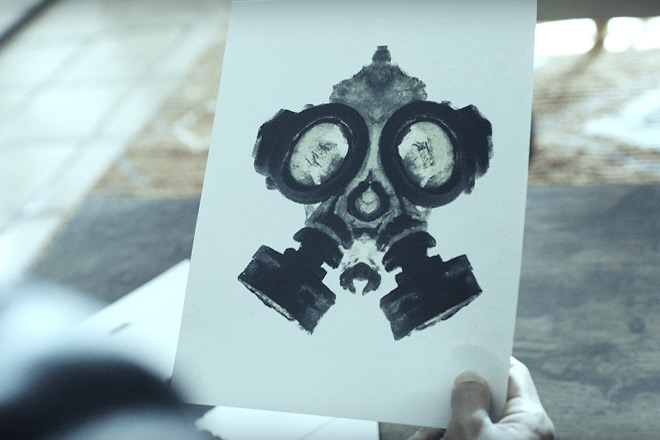It was a crisp autumn afternoon when I decided to visit a pumpkin patch I’d heard about from a friend. Armed with scribbled directions on a sticky note (as this was before the advent of GPS), I set off down a winding country road. The instructions seemed straightforward: “Turn left at the red barn, right after the bridge, then follow the dirt road.”
But as I passed a cluster of barns, all faded to some shade of rust, I realized the simplicity was deceptive. A wrong turn led me to a dead-end road where a man getting his mail laughed and pointed me back on track. When I finally arrived, the sight of vibrant orange pumpkins scattered across the field was worth the detour. It was a good reminder to myself to always make sure I have good directions.
Strong direction is also essential to the success of a horror movie, because it defines the film’s atmosphere and ability to evoke fear or dread. A skilled director integrates lighting, sound and camera work to build tension, while guiding performances to feel authentic and emotionally resonant. Every element — whether a lingering shot, a sudden cut or carefully placed silence — is intentional, heightening the audience’s immersion and emotional response.
For example, John Carpenter’s Halloween uses long takes and a haunting score to create an unnerving sense of inevitability, while Ari Aster’s Hereditary leverages meticulous framing and subtle visual cues to deepen the dread. Similarly, the recent film, Oddity, serves as a masterclass in weaving together these elements to craft a deeply engaging and terrifying experience.
Down Below is the latest chilling release from director Spyder Dobrofsky. Set on the 20th anniversary of a notorious Christmas Eve massacre, the film follows the return of the deranged preacher known as Mr. Monday (David Steen) to the small town where his reign of terror began. Among the townsfolk is Salem (played by Dobrofsky, himself), a man whose life has been shattered by a false accusation of pedophilia.
Desperate for redemption, Salem finds an unlikely ally in Karisma (Alexis Knapp), a call girl battling her own dark past. Together, they must confront their personal demons while evading Mr. Monday’s sinister new plans.
Spyder Dobrofsky may be a relative newcomer to the film industry, but he already has some notable writing credits, including the horror-Western Teardrop and the NBC holiday film, The Housewives of the North Pole. With a background in writing, one would expect Dobrofsky to have a strong grasp of storytelling and direction. Unfortunately, Down Below misses the mark entirely.
The film stumbles from one scene to the next without a cohesive narrative, ultimately leading to an underwhelming and anticlimactic ending.
Comparing Down Below to films like Halloween or Hereditary feels impossible. John Carpenter’s Halloween follows a clear and effective premise: a troubled boy murders his sister and returns years later to continue his killing spree. Ari Aster’s Hereditary meticulously escalates from everyday tension to a harrowing descent into death and possession, with every scene contributing to the nightmare. Down Below attempts to combine both ideas — a killer returning to the scene of past crimes and heavy-handed foreshadowing of the protagonists’ fates — but fails to execute them effectively.
Instead, the film becomes bogged down by an overuse of artistic flourishes, including stationary shots, blurred frames and jarring cuts. These choices, rather than enhancing the story, distract from it, making the viewing experience disjointed and, at times, headache-inducing.
The film boasts a cast of talented actors who should be capable of delivering strong performances, including Eric Roberts, Bai Ling and Alexis Knapp. However, whether due to apathy, a lack of clear direction, or a combination of both, their efforts fall disappointingly flat. These accomplished performers seem to simply go through the motions, as if waiting for the production to wrap and the paycheck to clear, rather than bringing any genuine energy or depth to their roles.
Down Below scrapes by with a dismal one out of five stars. While Spyder Dobrofsky has shown talent as a writer, he should consider leaving the director’s chair to someone better equipped to guide a film with clarity and purpose. The movie might have been salvageable with stronger direction, but this major shortcoming ensures its failure. The apparent indifference from the cast only compounds the film’s woes, offering little to redeem an already lackluster production.
Down Below attempts to do too much and thus delivers too little.

